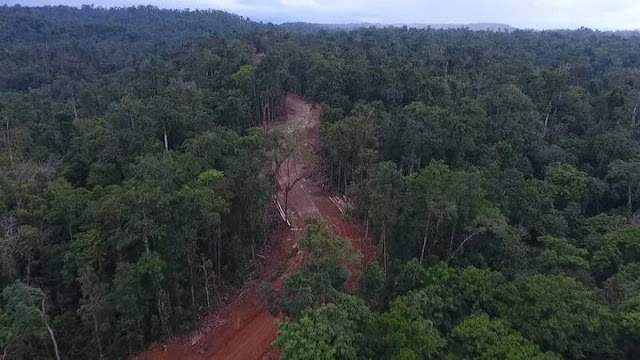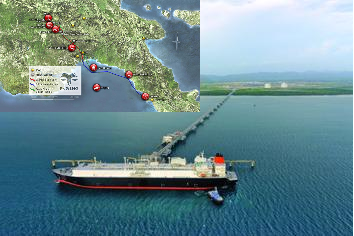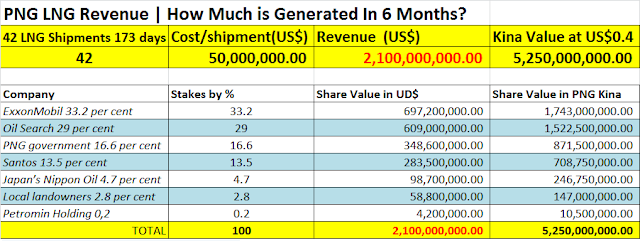Papua New Guinea is a lower-middle-income country with a GDP per capita of *$2,708 in 2022. While this is lower than the global average, Papua New Guinea's GDP per capita has been growing steadily in recent years. The mining sector is the largest contributor to the economy, followed by agriculture, forestry, and fishing. However, the country faces a number of challenges to further development, including a large informal sector, high levels of poverty and inequality, limited access to basic services, poor infrastructure, and a challenging business environment. Despite these challenges, Papua New Guinea has the potential to achieve strong economic growth in the coming years. Policymakers can focus on promoting economic diversification, investing in infrastructure and social services, improving the business environment, and reducing poverty and inequality to boost GDP per capita and create a brighter future for all Papua New Guineans.
*The World Bank classifies countries as lower-middle-income if their GDP per capita is between $1,046 and $4,095. Papua New Guinea's GDP per capita of $2,708 is therefore in the lower end of the range for lower-middle-income countries.
Introduction
Gross domestic product (GDP) per capita is a measure of economic well-being. It is calculated by dividing the total value of all goods and services produced in a country (GDP) by the population. GDP per capita is often used to compare the living standards of different countries.
Papua New Guinea is a lower-middle-income country with a GDP per capita of $2,708 in 2022 (World Bank). This is lower than the global average of $12,241. However, Papua New Guinea's GDP per capita has grown by an average of 2.5% per year over the past decade.
Trends
The growth of Papua New Guinea's GDP per capita has been driven by a number of factors, including strong growth in the mining and construction sectors, as well as an increase in government spending on infrastructure and social services. The mining sector is the largest contributor to the economy, accounting for around 20% of total output. The other main sectors of the economy are agriculture, forestry, and fishing (16%), construction (12%), and wholesale and retail trade (11%).
 |
| Papua New Guinea's GDP per capita comparison |
Composition
Papua New Guinea's economy is heavily dependent on the mining and oil and gas sectors. This makes the economy vulnerable to fluctuations in commodity prices. The government is working to diversify the economy and reduce its reliance on mining. However, this process will take time.
In addition to mining, Papua New Guinea has a significant agricultural sector. Agriculture employs around 80% of the population and contributes around 16% to GDP. However, agricultural productivity is low and many farmers live in poverty. The government is working to improve agricultural productivity and support farmers through programs such as the Special Agriculture and Business Lease (SABL) program.
 |
| Logging Special Agriculture and Business Lease (SABL) areas |
Challenges
Despite recent economic growth, Papua New Guinea faces a number of challenges to further development. These challenges include:
- A large informal sector, which is estimated to account for over 80% of the economy.
- Limited access to basic services such as education and healthcare.
- High level of systemic and sytematic corruption.
- A challenging business environment.
- High levels of poverty and inequality.
- Poor infrastructure.
The informal sector is a major challenge for the Papua New Guinean economy. It is difficult to tax and regulate the informal sector, which limits the government's ability to raise revenue and provide services. The informal sector also deprives workers of important benefits such as social security and minimum wages.
 |
| High level of systemic and sytematic corruption |
Poverty and inequality
Poverty and inequality are also major challenges for Papua New Guinea. According to the World Bank, around 40% of the population lives below the national poverty line. Inequality is also high, with the richest 10% of the population earning more than 40% of the country's income.
Papua New Guinea also faces a number of challenges in terms of access to basic services. The country has a high illiteracy rate and many people lack access to healthcare. Infrastructure is also poor, with many roads and bridges in need of repair.
Finally, the business environment in Papua New Guinea is challenging. The country has a complex regulatory environment and corruption is a problem. This makes it difficult for businesses to operate and invest in the country.
Prospects
Despite the challenges listed above, Papua New Guinea has the potential to achieve strong economic growth in the coming years. The country has a wealth of natural resources, a young and growing population, and a government that is committed to economic reform. If the government can successfully address the challenges listed above, Papua New Guinea can achieve significant progress in terms of economic growth and poverty reduction.
Conclusion
Papua New Guinea has made significant progress in recent years in terms of economic growth and poverty reduction. However, the country still faces a number of challenges, including a large informal sector, high levels of poverty and inequality, limited access to basic services, poor infrastructure, and a challenging business environment.
Policymakers can focus on promoting economic diversification, investing in infrastructure and social services, improving the business environment, and reducing poverty and inequality to boost GDP per capita and create a brighter future for all Papua New Guineans.
Recommendations
Here are some specific recommendations for policymakers in Papua New Guinea:
- Promote economic diversification by investing in sectors such as agriculture, tourism, and manufacturing.
- Invest in infrastructure and social services such as education, healthcare, and transportation.
- Improve the business environment by reducing regulatory burdens and combating corruption.
- Reduce poverty and inequality through targeted social programs and investments in human capital.
If the government can successfully address these challenges, Papua New Guinea can achieve significant progress towards its goal of becoming a high-income country.
Additional resources
- World Bank: Papua New Guinea Country Overview
- International Monetary Fund: Papua New Guinea Country Report
- Asian Development Bank: Papua New Guinea Country Profile
- Papua New Guinea Government: Website
- Papua New Guinea Institute of National Affairs: Website
Academic journals and books
- Asian Development Bank. (2022). Papua New Guinea Economic Update 2022.
- World Bank. (2022). Papua New Guinea Country Economic Memorandum: Building a More Resilient and Inclusive Economy.
- Lowy Institute. (2022). Papua New Guinea: Economic Challenges and Opportunities.
- Papua New Guinea Institute of National Affairs. (2022). Papua New Guinea Economic Outlook 2023





